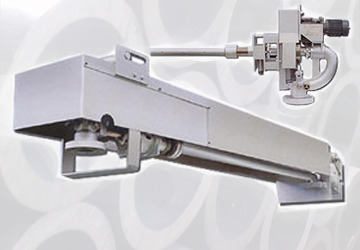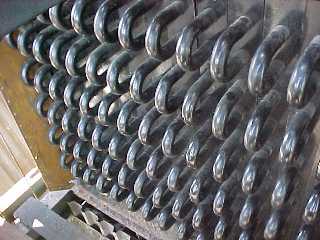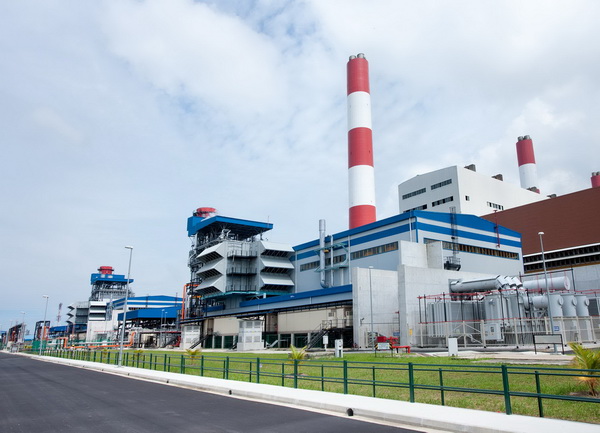
The Ultimate Guide to Sootblower Replacement Parts
Sootblowers are essential components of industrial boilers. Just like the name implies, they can remove soot and ash buildup from a boiler’s heat exchange surfaces.
Home » The Importance of Boiler Controls and Measurement Instruments
Boilers provide essential heating and steam generation for industries ranging from power production to manufacturing. To ensure safety, efficiency, and functionality, rely heavily on sophisticated controls and precise measurement instruments.
Here’s how these controls and instruments work – and why they’re so important.
Industrial boiler controls include the following:
Pressure Controls: These controls regulate the steam pressure within the boiler. Pressure controls ensure the pressure stays within safe limits to prevent explosions or damage.
Temperature Controls: These maintain the desired temperature of the water and steam. They are essential for processes that require precise temperature regulation.
Water Level Controls: Maintaining a proper water level prevents overheating and ensures the boiler operates efficiently. Low water cut-off controls stop the boiler if water levels fall too low.
Burner Controls: These regulate the fuel supply to the boiler’s burner, ensuring efficient combustion and maintaining the required heat output.
Safety Relief Valves: These valves release pressure if it exceeds a specific limit, keeping the boiler safe from excessive pressure buildup.
Flow Controls: These manage the flow of water and steam within the system, ensuring consistent distribution and preventing bottlenecks.
Boiler operation is controlled through a combination of manual and automated systems designed to maintain optimal performance and safety. The primary components of boiler control systems include:
Programmable Logic Controllers (PLCs): These are digital computers used to automate electromechanical processes. They monitor various inputs (including temperature, pressure, and water level) and adjust outputs (including fuel supply and water feed) accordingly.
Supervisory Control and Data Acquisition (SCADA) Systems: SCADA systems provide centralized control and monitoring of boilers. They collect real-time data, allowing operators to make informed decisions and respond to issues promptly.
Distributed Control Systems (DCS): DCS are used in larger installations and integrate multiple control loops for more complex processes. They offer high reliability and precise control over boiler operations.
Manual Controls: Operators can manually adjust settings via control panels, providing direct intervention when necessary. This includes adjusting fuel and air supply, water feed rates, and other critical parameters.
Boiler performance is measured using various instruments that provide critical data for ensuring efficient and safe operation. Key measurement instruments include:
Pressure Gauges: These gauge the steam and water pressure inside the boiler to help maintain safe operating conditions.
Temperature Sensors: These sensors detect the temperature of water, steam, and exhaust gasses. Maintaining ideal temperatures is essential for efficiency and safety.
Flow Meters: Flow meters track the flow rate of water and steam within the boiler system, ensuring efficient heat transfer and preventing overheating or pressure imbalances.
Water Level Indicators: These indicators provide real-time data on the water level within the boiler. Accurate water level measurements prevent dry firing and ensure efficient operation.
Combustion Analyzers: These measure the composition of flue gasses, providing data on combustion efficiency and emissions. This information helps optimize fuel usage and reduce environmental impact.
Efficiency Meters: These meters calculate the boiler’s overall efficiency by comparing the energy input (fuel) to the energy output (steam or hot water).
Boiler controls and measurement instruments are vital for several reasons:
Safety: The primary concern in boiler operation is safety. Proper controls and measurements prevent hazardous conditions such as explosions, fires, and toxic gas releases. Safety controls like pressure relief valves and low water cut-off devices are critical for preventing catastrophic failures.
Efficiency: Accurate controls and measurements optimize fuel consumption and heat transfer, reducing energy waste and operational costs. Efficient boiler operation also minimizes environmental impact by lowering emissions.
Reliability: Regular monitoring and precise control of boiler parameters ensure consistent and dependable operation. This reliability is crucial for industries where continuous production requires an uninterrupted steam supply.
Maintenance: Early detection of issues through accurate measurements allows for on-time maintenance, avoiding expensive downtime and extending the lifespan of the boiler.
Compliance: Following regulatory standards is essential for legal operation. Accurate measurement instruments help ensure compliance with safety, environmental, and operational regulations.
Enhanced Safety: Automated controls and accurate measurements significantly reduce the risk of accidents and hazardous conditions.
Improved Efficiency: Optimized fuel usage and heat transfer lead to savings and decreased environmental impact.
Consistent Performance: Reliable operation ensures a steady steam or hot water supply, essential for many industrial processes.
Proactive Maintenance: Catching possible issues as early as possible allows for proactive maintenance, reducing downtime and repair costs.
Regulatory Compliance: Ensures adherence to safety and environmental regulations, avoiding legal issues and potential fines.
Initial Cost: Implementing advanced control systems and measurement instruments can be expensive, posing a significant (but worthwhile) initial investment.
Complexity: Advanced control systems require skilled operators and technicians for installation, operation, and maintenance.
Maintenance Requirements: Regular calibration and maintenance of measurement instruments are necessary for accuracy, adding to operational costs.
Potential for Malfunction: Despite their reliability, control systems and measurement instruments can fail, requiring backup systems and contingency plans.
While setting up boiler controls and measurement instruments can be a bit costly and complex, the benefits in terms of safety, efficiency, and compliance far outweigh the disadvantages.
When properly managed, these essential systems can lead to significant operational improvements and cost savings, making them indispensable in modern boiler operations.
Industrial Boilers America can help you choose the correct boiler systems for your facility’s needs. With 20+ years of industry experience, we can walk you through each step of the process and help you make the right choice.
Contact us today to get started.
At Industrial Boilers America, we lead in providing the development, licensing, and deployment of Industrial Power plants. We partner with other leaders of communities and governments to foster long-term relationships that create sustainable energy, jobs, and social responsibility. Our philosophy that sustainability should be rooted in the betterment of the ecosystem rather than profit allows us to provide services that will enable our partners to reinvest in themselves, resulting in a sustainable community.

Sootblowers are essential components of industrial boilers. Just like the name implies, they can remove soot and ash buildup from a boiler’s heat exchange surfaces.

Industrial boilers are essential for keeping the world moving. Understanding the critical industrial boiler parts ensures efficient operation, safety, and longevity of equipment. Main Industrial

From manufacturing to energy production, the industries that make the world move rely on boilers as the backbone of their systems. Your choice of boiler